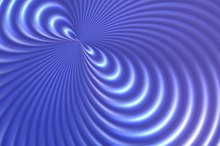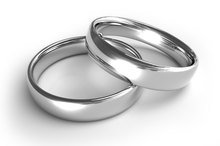What Are the Benefits of a Magnetic Mattress Pad?
People use magnetic mattress pads for medical reasons, anti-aging reasons or purely for the comfort provided by the magnetic mattress pad. Studies have shown that the magnets imbedded in the pad can help improve circulation, prevent the build-up of calcium and provide optimum comfort for those suffering from joint or muscle pain.
Magnetic Mattress Pads
A magnetic mattress pad is usually about 3 inches thick, and is comprised of stripes of 50 to 200 magnets that are sewn into a durable fabric. To retain a level of comfort for the person using the magnetic mattress pad, the stripes are covered on both sides with foam or polyester fibers. Usually the outer layer of the pad is made up of some hypo-allergenic material. The pads are rated by the force of the magnets imbedded inside them: anywhere from about 200 to 10,000 gauss (what is used to describe the actual force of a magnet). The magnetic energy derived from the pad is supposed to help you experience a more restful night’s sleep, and can possibly help alleviate any recurring health issues.
- A magnetic mattress pad is usually about 3 inches thick, and is comprised of stripes of 50 to 200 magnets that are sewn into a durable fabric.
- To retain a level of comfort for the person using the magnetic mattress pad, the stripes are covered on both sides with foam or polyester fibers.
Bone, Joint and Muscle Pain Relief
Health Effect of Magnets
Learn More
While manufacturers claim that a magnetic mattress pad can help cure specific ailments such as: insomnia, fibromyalgia, multiple sclerosis, rheumatoid arthritis, epilepsy and nicotine addiction, among others, there is no sufficient proof as of yet that magnetic mattress pads have the guarantee to do so.such as:
- While manufacturers claim that a magnetic mattress pad can help cure specific ailments such as: insomnia
- fibromyalgia
- multiple sclerosis
- rheumatoid arthritis
- epilepsy
- nicotine addiction
- among others
- there is no sufficient proof as of yet that magnetic mattress pads have the guarantee to do so
What seems certain, however, is that magnetic mattress can help alleviate suffering from bone, joint and muscle pain.
Circulation
Magnetic mattress pads also have shown that they have the ability to help improve circulation, thanks to the strategically placed magnets present in the upper layer of the pad. Poor circulation can lead to cold and tingling hands and feet. When you use a magnetic mattress pad, you can help revitalize your body’s organs, and strike the right balance, so that you have normal circulation.
- Magnetic mattress pads also have shown that they have the ability to help improve circulation, thanks to the strategically placed magnets present in the upper layer of the pad.
- When you use a magnetic mattress pad, you can help revitalize your body’s organs, and strike the right balance, so that you have normal circulation.
Relaxation
How to Put on a Knee Brace Properly
Learn More
Magnetic mattress pads have also been found to help reduce stress, and you should experience a more restful and deeper sleep. In fact, people that suffer from insomnia might find that by using a magnetic mattress pad, they will have an easier time getting the full amount of rest that is needed on a daily basis. The magnets in the pad will help your body achieve the correct alignment, and should invoke stress-free feelings of relaxation.
Considerations When Buying a Magnetic Mattress Pad
If you are considering buying a magnetic mattress pad, consult your doctor first to see if this type of therapy would be best for your unique situation. Also, when you are shopping for a pad, be sure to check for the number of magnets used, and pad materials. Some of the best magnetic mattress pads are made from memory foam, which provides a level of comfort for users.
Related Articles
References
Writer Bio
Alexa Evans is a freelance writer and marketing editor based in San Diego, Calif. Evans has been published in "Tango Diva," "Map Vivo" and "Trazzler." She earned a Bachelor of Arts in journalism from the University of California, Santa Cruz.







